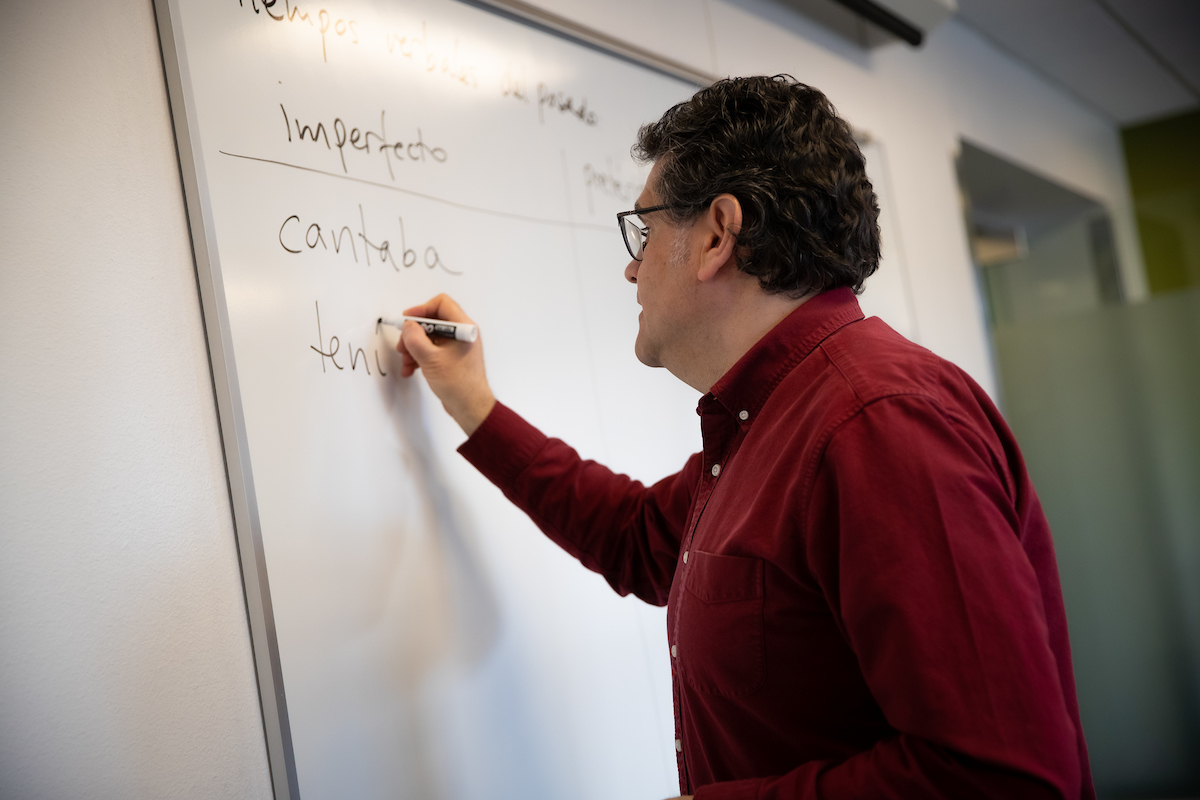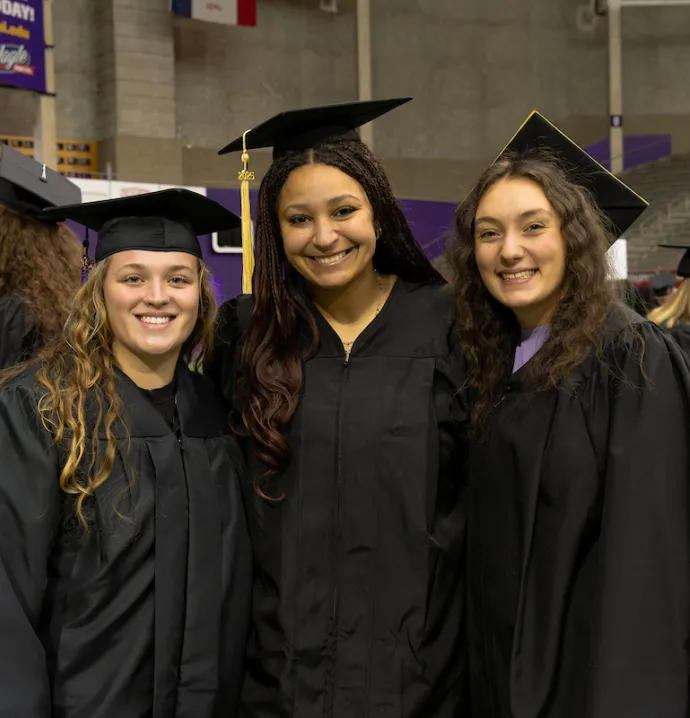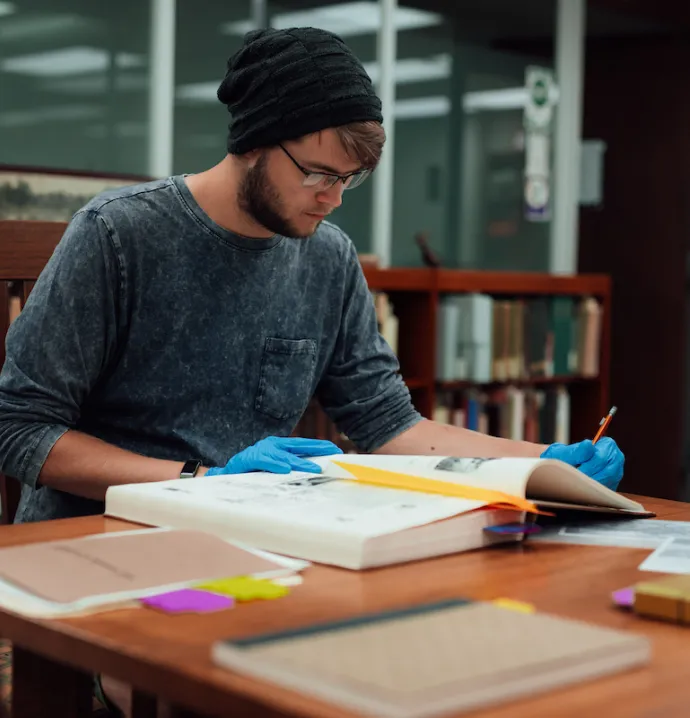Heritage speakers learn the art of translation
Heritage speakers learn the art of translation

Hands-on learning is a hallmark of the UNI experience. During the spring 2023 semester, UNI students in the Translation for Heritage Speakers had the chance to put their skills to use in real-world scenarios, thanks to some unique assignments from Associate Professor of Spanish Linguistics Juan Carlos Castillo. Not only did the students translate 19 articles into Spanish for The Northern Iowan, but they also translated documents for multiple Iowa nonprofit organizations.
The advanced version of the Spanish for Heritage Speakers class, Translation for Heritage Speakers is for students who grew up speaking Spanish at home. Because of this, students have greater language proficiency than students who might take a standard translation course.
“In a regular translation course, we start with more basic grammatical topics that may be challenging for English speakers,” Castillo explained. “But, in many cases, those are things heritage speakers already know, and they don't need practice.”
Offering a Translation for Heritage Speakers course has been a dream of Castillo’s for many years, but there wasn’t a big enough population of heritage Spanish speakers at UNI to fill a class until spring 2023. Now, Castillo hopes to offer the course every third semester or even every year.
The Spanish column of The Northern Iowan, known as The Northern Iowan en Español, pre-dates the Translation for Heritage Speakers class by about two years. The idea for the column came from Nixson Benitez and Elizabeth Kelsey, two Northern Iowan staff members who were students of Castillo’s at the time. They asked for Castillo’s help with proofreading some of the articles. When it was clear the column would become a more permanent feature of the paper — including the hire of a dedicated Spanish editor — Castillo saw a great opportunity to get his class involved.
At first, Castillo involved his Spanish Translation class. When he was able to start the Translation for Heritage Speakers class, he knew it was a better fit. Since the students have greater language proficiency, they are able to meet the tight deadlines of the newspaper. Typically, the class would receive 600-word articles in need of translation three to four days in advance. Not only would the students translate the articles in this timeframe, Castillo would proofread the result as well. Once the Spanish editor received the translated articles, the final edits would take shape.
“It's an opportunity to practice things we have seen in class,” said Castillo. “It was actually quite often that we ran into the same grammatical topics we had studied. So for my students, it was a good way to practice.”
“Working with other heritage speakers made us feel like we created a little community,” said Karina Ortiz, the current Spanish editor of The Northern Iowan who is a senior English major with a minor in Spanish/English translation.
Castillo’s class translated about half of The Northern Iowan en Español articles published in spring 2023. The other half was produced by the newspaper staff.
In the future, Castillo would like to see the Spanish column reach a wider Spanish-speaking audience. Over the summer, he is hoping to work with Ortiz to put together an anthology of the best stories in Spanish to use at recruiting events with Spanish-speaking families. Castillo also hopes some Spanish editions of the paper can be mailed to Spanish teachers in Iowa.
Both Ortiz and Castillo believe preserving this column at UNI is important.
“Having a Spanish column is very important because it shows the community at UNI is very diverse,” said Ortiz. “It shows people first-generation and second-generation college kids can come to the university and be included.”
While this work with The Northern Iowan benefits the UNI community, Castillo’s Translation for Heritage Speakers and Spanish Translation classes have also worked on projects for nonprofit organizations such as Iowa Legal Aid, benefitting the broader Iowa community.
Over the course of the semester, Castillo’s two classes translated about 40,000 words for the organization, which offers legal help to low-income Iowans. If the nonprofit had hired a professional translator to get the job done, Castillo said it could have cost $4,000-$5,000.
The two classes translated some booklets that simplify Iowa laws, including tenant-landlord laws, divorce documents and custody laws for Iowa Legal Aid. Additionally, one of Castillo’s graduate students translated a brochure for YPN’s free diaper distribution program.
“This is what community engagement is all about,” said Castillo. “The students benefit from the experience. They get the credits, and these nonprofit organizations that do very important work really benefit from our help.”
Castillo also believes learning the art of translation is a valuable skill students may use in the future, even if they don’t take a job as a translator.
“Right now, there are about 40 million Spanish speakers in the United States,” he said. “So pretty soon, maybe in the next few years, the United States could be number two or number three among all the countries in the world in the number of Spanish speakers. So there is a community out there that needs and appreciates the services.”




